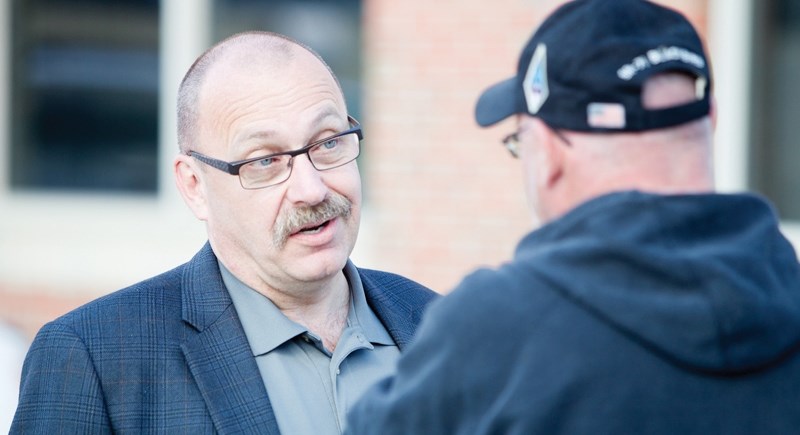DIDSBURY - Alberta’s mid-sized towns, including Didsbury, need more than $200 million every year to meet infrastructure repair, replacement and upkeep costs, mayors recently told Premier Danielle Smith and Ric McIver, minister of Municipal Affairs.
Members of the Alberta Mid-Sized Towns Mayors Caucus, including chair and Didsbury mayor Rhonda Hunter, met with Smith and McIver on Nov. 21 to discuss ongoing and future infrastructure needs, including for roads and water systems.
“We have 84 mid-sized towns and the number that we put out there was $226 million annually to help catch up and stay ahead of the infrastructure needs of our towns,” Hunter told the Albertan. “We talked about deficits and funding for our core and critical infrastructure and even recreational infrastructure.
“We had a really good conversations about the needs of mid-sized towns and how we believe there is a funding gap that we see the charter cities and mid-sized cities getting ahead of us on and even the funding gap with the inflation rate.”
The caucus was founded to advocate for the needs and requirements of mid-size towns.
The mayors told Smith and McIver that the municipalities would like to see a separate funding stream created to help with their towns’ infrastructure costs.
“We are after that extra pot of funding to help meet the needs of our failing and crumbling and even new infrastructure,” she said. “We went to talk to them about the funding model we would be looking for and where would the money come from.
“What we did tell them is that the funding can’t come grants that are already existing and funding pots that are already existing; it would have to be a new pot of money.
“This new funding pot would create an environment to discuss sustainable funding levels for mid-sized towns.”
Infrastructure needs facing mid-sized towns include roads, sewers, arena upgrades, pool repairs, waste management system, she said.
“There’s very few, if any (towns), that don’t have a major amount of funding they need to catch up with the deterioration or replacement or renewal of that infrastructure,” she said.
In an effort to move things forward, the caucus has proposed the formation of a working group, made up of caucus members and government officials, to find ways to address the funding concerns, she said.
“We have offered to participate in a working group as to how we can get to the funding, whatever that might look like, and the model,” she said. “We’d like to form a working group with the province and with Municipal Affairs to start the discussions on how we can start to meet the needs of these infrastructure deficits and get our municipalities moving.
“We want to be proactive in finding the issues and be proactive in getting them repaired or renewed or repaired. Minister McIver said he is willing to work with us.”
The mayors did tell Smith and McIver that increasing the tax burden on local ratepayers is not a workable solution.
“We all agreed that municipal property tax increases are not the answer to this; it has to be a new funding pot that the provincial needs to make available,” she said.
“We are happy to participate in the working group. We are happy with that response because it really gets the talks moving forward.”
Asked when the working group will get together, she said, “We did request that January be considered for our first meeting to talk about how that working group will look and then we will wait to hear back from minister McIver on how he sees that happening.
“We hope to get started on it in January. We want to be treated like the charter cities and the mid-sized cities and have that fair funding model that everybody wants.”
Mayor Hunter said she would be willing to sit on the new working group.



